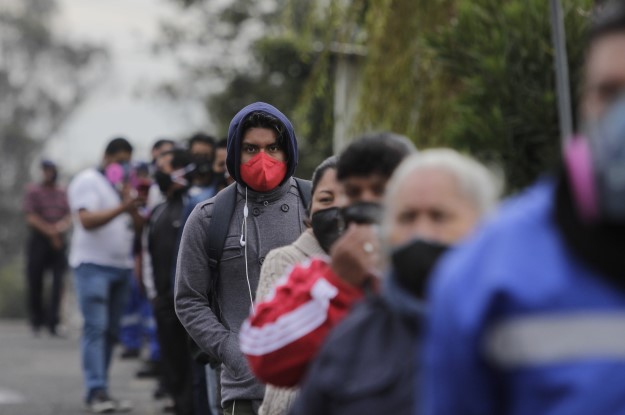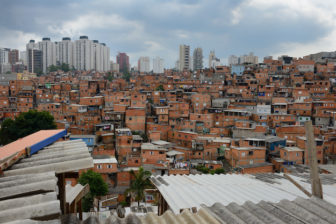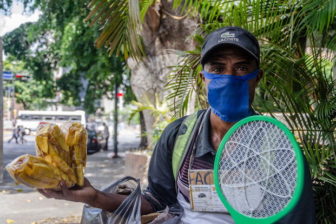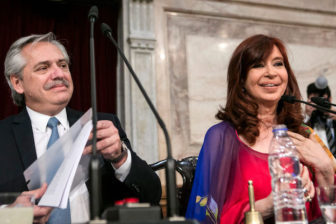The world is facing an unprecedented pandemic that does not care about borders or nationalities. My country Ecuador has been among those hit hardest, with over 53,000 COVID-19 cases and more than 4,000 related deaths. Guayaquil, Ecuador’s most important commercial port and home to over three million people, was the site of one of the worst coronavirus outbreaks. The city has largely recovered, but Ecuador isn’t out of the woods yet: Cases in the capital of Quito have surpassed 6,000 over the past few weeks. With hospitals overflowing and burial systems collapsed all over the country, there is no end in sight to this pandemic.
Yet Ecuador has all but faded from international headlines.
My country needs global attention. My fellow 17 million Ecuadorians are dealing not only with colossal health and human costs, but also with severe economic pressures that will have lasting repercussions on the place I call home. The drop in international oil prices and demand – a third of Ecuador’s export income comes from oil – has exacted a disastrous toll on the national economy, such that Ecuador may have to default on its $17 billion in sovereign debt. Although Ecuador takes its international commitments seriously, it may, like many other countries, simply lack the resources to simultaneously repay creditors and fulfill its duty to protect citizens from the worst pandemic in a century.
In this dire situation, the private sector has a critical role to play. The coronavirus has overwhelmed governments around the world – and the Ecuadorian government is no exception. Despite its best efforts to deal with the crisis, government action has simply been insufficient. During my time as mayor of Ecuador’s capital, Quito, I witnessed firsthand the dedication and perseverance of the Ecuadorian public servants who tirelessly worked around the clock to build a better future for our country. However, my experience in public service has also taught me that sometimes this is just not enough; to face the most pressing challenges, societies everywhere must demand close cooperation between government, businesses, and civil society. One example that comes to mind is the Junta de Beneficencia de Guayaquil (JBG), Ecuador’s largest nonprofit charity organization, which has been providing aid to millions of underprivileged Ecuadorians for over 130 years. The contributions of organizations like these have become integral to supporting communities throughout Latin America – and it is no coincidence that the JBG is on the frontlines once again fighting COVID-19 in Ecuador.
That is why when the pandemic hit Ecuador I decided to act, as both a private citizen and an entrepreneur. Because I’ve observed the vast disparities between government action and public works, I knew pre-existing pandemic relief efforts like the government’s humanitarian assistance account were not going to be enough. This account pulls funds from two places: 1) companies earning more than one million dollars that will finance smaller companies that require capital; and 2) workers in Ecuador who earn more than $500 per month. Aiming to offset the economic disparity that the coronavirus has caused while protecting almost two million Ecuadorians that fall below the poverty line, these efforts, though all in good faith, do not directly address the ongoing pandemic and the immediate healthcare needs of citizens.
In early April, alongside a team of respected Ecuadorians, I launched Por Todos, a people-led emergency fund aimed at mitigating the impacts of the coronavirus crisis through innovative and efficient solutions. This fund adheres to the highest international standards and has no political or corporate affiliations because there is no room for divisions when it comes to saving lives.
The fund has already raised over $6 million in cash and over $1 million in kind, empowering the organization to provide food and cash donations for more than 150,000 people, acquire thousands of test kits, secure care for patients at triage centers, and distribute much-needed protective equipment. Herein lies an ability of the private sector that the government often lacks: The power to create fast-acting relief that is delivered straight to the people. These are only small steps in a long journey, and there is still much to do. But donors from all over the world have generously provided us with the resources to change – even save – the lives of thousands in Ecuador; the social networking service TikTok recently donated $500,000 to Por Todos.
Even though I have been inspired by the fruit of our effort, I admit we have not done nearly enough. Nor will we be able to do what is required of us without the support of the nearly 750,000 Ecuadorians living in the United States, their families, friends, neighbors, and the generous support of the American people.
During his visit to Ecuador in 2018, U.S. Vice President Mike Pence heralded the opening of a new chapter in the relationship between the United States and Ecuador, a chapter he said – and I agree – must start with shared prosperity. The Ecuadorian and American peoples have formed strong bonds over time and are now working more closely than ever to fulfill that vision of shared prosperity. This organization and I are proudly part of this coordinated effort, and we won’t give up until our country is restored to its full health.
I have always admired the altruistic spirit that is so prevalent in North, Central and South American communities. Today, I appeal to this kind spirit and to people everywhere – please support your Ecuadorian brothers and sisters. Help give my country a chance. We’re all a part of the same tapestry. It’s time we work together to revitalize that which we hold most dear.
—
Sevilla was mayor of Quito, Ecuador, from 1998-2000. He is president of Grupo Futuro, and founder of Por Todos.








